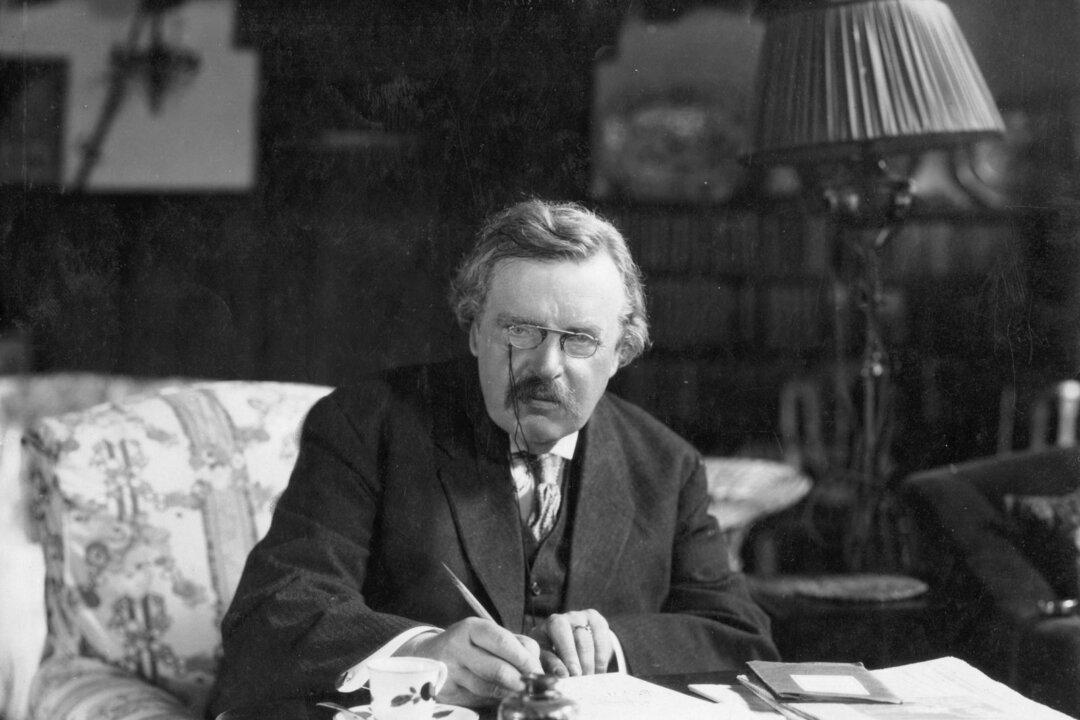Born in 1874 in England, as an adult he stood 6 feet, 4 inches tall and weighed close to 300 pounds. He often wore a cape, smoked cigars, carried a sword, praised beer and alehouses, and converted to Catholicism. His bulk and eccentricities made him a popular figure for caricature.
When he married Blogg in 1901,






